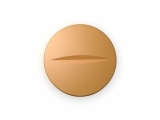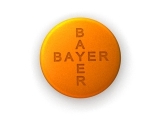Erectile disorder exam
Are you experiencing difficulty achieving or maintaining an erection? It could be a symptom of erectile dysfunction (ED), a common condition that affects millions of men worldwide.
If you think you may have ED, the first step is to schedule an erectile disorder exam. This exam will help your doctor diagnose the cause of your ED and develop a personalized treatment plan to help you get back to enjoying intimacy.
So, what can you expect during an erectile disorder exam? Your doctor will ask about your medical history, symptoms, and lifestyle factors that may be contributing to your ED. They may also perform a physical exam and some lab tests to check your hormone levels, blood flow, and overall health.
To prepare for your exam, it's important to make a list of any medications you're taking, as well as any questions or concerns you may have. You may also want to avoid alcohol and caffeine leading up to your exam.
The key to treating ED is early detection and intervention. Don't wait to seek help – schedule your erectile disorder exam today and take control of your sexual health.
Importance of Erectile Disorder Exam
What Is Erectile Disorder?
Erectile disorder, also known as erectile dysfunction (ED), is a condition where a man has difficulty achieving or maintaining an erection during sexual activity. ED can have a significant impact on a man's self-esteem, relationships, and overall quality of life.
Why Is An Exam Important?
An exam is important for diagnosing erectile disorder and identifying underlying medical conditions that may be contributing to the problem. ED can be caused by a variety of factors, including high blood pressure, diabetes, prostate cancer, and heart disease. An exam can help rule out any underlying medical conditions and help determine the best course of treatment.
What Can I Expect During The Exam?
During the exam, your healthcare provider will ask you about your medical history, symptoms, and sexual health. They may also perform a physical exam and run tests to check your blood flow, hormones, and nerve function. Depending on the results, they may recommend medication, counseling, or other treatments.
How Can I Prepare?
To prepare for an erectile disorder exam, it's important to be honest with your healthcare provider about any symptoms or concerns you may have. You may also want to bring a list of any medications, vitamins, or supplements you're taking. It's also a good idea to wear comfortable clothing, as you may be asked to undress for the physical exam.
- Be honest about your symptoms and concerns
- Bring a list of medications, vitamins, and supplements
- Wear comfortable clothing
Taking control of your sexual health is important for your overall well-being. An erectile disorder exam can help diagnose and treat ED, allowing you to enjoy a healthier, more fulfilling sex life.
Understanding the Exam Procedure
What happens during the Erectile Disorder Exam?
The Erectile Disorder Exam is an important step towards identifying the cause of erectile dysfunction. During the exam, your healthcare professional will ask you questions about your medical history, lifestyle habits, and any medications you may be taking. This information will help them to determine the best course of action for your treatment plan.
Your healthcare professional may also perform a physical examination that includes checking your penis and testicles for any abnormalities, measuring blood pressure, and examining your prostate gland. They may also order lab tests to check your hormone levels and to rule out any underlying health conditions.
How can you prepare for the Erectile Disorder Exam?
Preparing for the Erectile Disorder Exam can help you feel more comfortable and confident during the appointment. It is important to be honest and open with your healthcare professional about any symptoms you may be experiencing, as well as your medical history. You may want to consider writing down any questions or concerns you have before the appointment so that you don't forget to ask your healthcare professional.
Additionally, it may be helpful to wear loose clothing to the appointment in case a physical examination is necessary. You should also bring a list of any medications you are currently taking, including over-the-counter supplements, herbs, or vitamins.
- Be honest and open with your healthcare professional about any symptoms you may have.
- Write down any questions or concerns you have before the appointment.
- Wear loose clothing to the appointment.
- Bring a list of any medications you are currently taking.
Appointment Preparation Guidelines
1. Review your medical history
Before your appointment, take the time to review your medical history and any medications you are currently taking. This information can help your healthcare provider better understand your overall health and potential risk factors for erectile disorder.
2. Come prepared with questions
It's important to come to your appointment with any questions or concerns you may have about erectile disorder. This can include questions about treatment options, lifestyle changes, and potential causes of your symptoms.
3. Be prepared for a physical exam
Your healthcare provider may perform a physical exam to help diagnose erectile disorder. This can include checking your blood pressure, examining your genitals, and assessing any potential nerve damage.
4. Consider bringing your partner
If applicable, consider bringing your partner to your appointment. They can provide valuable insight into your symptoms and offer support throughout the diagnostic and treatment process.
5. Follow any pre-appointment instructions
Your healthcare provider may provide specific instructions to follow before your appointment, such as fasting before a blood test. It's important to follow these instructions carefully to ensure accurate testing and diagnosis.
6. Don't be afraid to ask for help
If you are feeling nervous or unsure about your appointment, don't be afraid to ask for help. Your healthcare provider can offer guidance and support throughout the entire process.
What to Expect During the Exam
1. Medical History
During the erectile disorder exam, expect the doctor to ask you about your medical history. This includes questions about your symptoms, lifestyle, medications you take, and any underlying health conditions you may have.
2. Physical Exam
A physical exam is also likely to happen during the erectile disorder exam. The doctor will examine your body for any physical abnormalities or signs that may be causing your symptoms. They may also check your blood pressure and heart rate to rule out any underlying health issues.
3. Psychological Evaluation
In some cases, a psychological evaluation may also be conducted during the erectile disorder exam. This includes a discussion with the doctor about your mental health, stress levels, and any emotional factors that may be contributing to your symptoms.
4. Diagnostic Tests
The doctor may also order diagnostic tests to further investigate the cause of your symptoms. This may include blood tests, urine tests, or imaging tests such as ultrasound or MRI.
5. Treatment Plan
After the exam, the doctor will discuss a treatment plan with you based on their findings. This may include medication, therapy, lifestyle changes, or a combination of approaches to alleviate your symptoms.
Post-Exam Tips and Suggestions
1. Follow Your Doctor's Advice
After your erectile disorder exam, it is important to follow your doctor's advice. This could include taking medication as prescribed, making lifestyle changes, or attending follow-up appointments. Your doctor knows your medical history and can provide the best advice for your specific situation.
2. Practice Stress-Reduction Techniques
Stress can be a major contributor to erectile dysfunction. After your exam, try to prioritize stress-reduction techniques such as meditation, yoga, or deep breathing exercises. This can help to improve your overall well-being and may also improve your sexual health.
3. Maintain a Healthy Lifestyle
A healthy lifestyle can also play a significant role in erectile function. Make sure to eat a balanced diet, engage in regular physical activity, and avoid smoking or excessive alcohol consumption. This can help to improve blood flow and overall sexual health.
4. Communicate with Your Partner
Erectile dysfunction can have an impact on sexual relationships. After your exam, it may be helpful to communicate with your partner about your health and any concerns or feelings you may have. This can help to strengthen your bond and increase intimacy.
5. Seek Support if Needed
If you are struggling with the emotional or psychological effects of erectile dysfunction, consider seeking support from a therapist or support group. This can provide a safe space to discuss your feelings and receive guidance and coping strategies.
| Follow Your Doctor's Advice | Practice Stress-Reduction Techniques |
| Maintain a Healthy Lifestyle | Communicate with Your Partner |
| Seek Support if Needed | |
Follow-Up Appointment and Next Steps
What to Expect for Your Follow-Up Appointment
After your initial erectile disorder exam, your healthcare provider may recommend a follow-up appointment to discuss next steps. During this appointment, you can expect your provider to review any test results and discuss potential treatment options with you.
Your provider may also perform additional tests or refer you to a specialist for further evaluation. It’s important to attend your follow-up appointment in order to receive a proper diagnosis and appropriate treatment.
Next Steps for Treating Erectile Disorder
Depending on the cause and severity of your erectile disorder, your healthcare provider may recommend a variety of treatment options. These can include medications, lifestyle changes, therapy, or a combination of these approaches.
- Medications: Your provider may prescribe medications such as sildenafil (Viagra), tadalafil (Cialis), or vardenafil (Levitra) to help improve erections.
- Lifestyle Changes: Your provider may recommend lifestyle changes such as quitting smoking, losing weight, or reducing alcohol consumption to improve symptoms.
- Therapy: Your provider may recommend therapy to help you work through any psychological issues that may be contributing to your erectile disorder.
It’s important to work closely with your healthcare provider to find the right treatment plan for you. With the right care, erectile disorder can often be successfully treated.
Follow us on Twitter @Pharmaceuticals #Pharmacy
Subscribe on YouTube @PharmaceuticalsYouTube





Be the first to comment on "Erectile disorder exam"